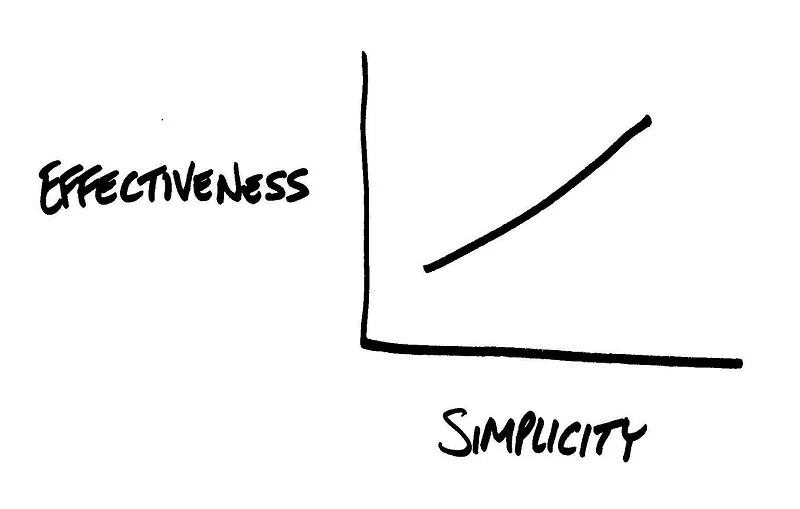The secret to building a successful startup? Pick a real problem, not a hard one
Our education system (and our society at large) loves people solving hard problems. Had Uber, Grofers, and UrbanClap not been million dollar firms, we would have mocked them with demeaning tags like online Taxi/Sabzi/Electrician waale.
More so, Reliable and cheap transportation was a problem. Getting your local kirana shop to deliver was a problem. Finding a household service person was a problem.

Image credit- iStock
What are we startup founders collectively doing wrong?
- We come up with brilliant ideas for problems that don’t actually exist.
- Then we end up with the most complicated solution to this problem (see the irony here?).
Look at it this way – You make a full featured Swiss Army Knife and put it in the hands of a housewife who just wants to chop vegetables. Sure, she has a much more sophisticated product in hand but not usable in any way. We try and do a million different things because others were successful. Stop doing this. NOW.
People have a tendency to overcomplicate things. We like complicated things because they seem more elaborate and hence more beautiful, more intelligent, more intellectual, more scientific, and more true. I disagree. More features do not translate into a better product. I think it works best when it’s simple. Leonardo da Vinci said this way back in the 16th century –
Simplicity is the ultimate sophistication.
Take, Uber for example. It’s a simple idea – tap a button, get a ride. Uber started as an app to request premium black cars. No UberX, no Pool, no demand prediction and no surge pricing. Uber started out small by solving a basic problem and it clicked. Now it does over two million trips a day. That’s how you reinvent an industry, with one screen.
So how can we avoid making these mistakes? Here are some things to keep in mind when starting up:
#1 - Discover a real problem. Not necessarily a hard one.
Start by mapping out the pain points that you’ve had to consistently face. Take yourself back to when you wanted something out there to give you your peace of mind.
You’d be surprised how many people come up with ideas to solve the problem that don’t actually exist. Y-Combinator calls these manufactured problems as ‘sitcom ideas’. Ideas that sound like something a sitcom writer came up with for a character that sound vaguely plausible, but are actually pretty bad.
#2 - Start simple – Pick a single problem and do it well
Narrow down the scope to a single problem that you want to solve. One kickass solution to a real problem far outweighs a dozen half-assed ones to multiple problems. Focus on the smaller problem and solve it really well.
WuFoo is the perfect example. It allows people without any background in coding to build their own forms and surveys. When they were being acquired, they boasted over 5,00,000 users, with approximately five million people using WuFoo forms. The team of 10 exited for $35 million.

Image credit: http://tophdimgs.com/444378-simplicity.html
#3 - You should be able to explain your startup in one sentence
Brevity eliminates the confusion and fluff. There’s no way to dress up a terrible idea as something more worthy than a trash can. This is not for saving busy VCs time or for the declining attention span of society. It is for you to realise the main purpose of your startup and have clarity.
#4 - Focus on value. Make something that JUST works.
The best way to get your first $1 billion is to focus on the values that help you get that first $1. If you get that right, everything else will take care of itself. Focus on the values that help you get that first $1 from that first user.
If you do the little jobs well, the big ones will tend to take care of themselves.
#5 - Don’t only be obsessed with the product, but also listen to what users say
Now Steve Jobs might have said that consumers don’t know what they want. But once you have thrown the product in the market, listen to your customer for their feedback. Apple might have made their products without doing many customer surveys, but on the contrary we have companies like Amazon, known for its impeccable attention to what the customer wants. Bezos isn’t building a multibillion company here, he’s building a legacy.
#6 - Put your customers to work
Make them your best Product Managers and get 10 times returns. Your customer will give you everything right from feature ideas to valuable reviews and of course your billion dollars.
Amazon asks its customers what products they want and designs the whole processes around it. One of my friends working at Amazon tells me that even the smallest decisions are taken based on the customers. Be like Amazon.
#7 - Make your users grow with the product.
No one likes reading complex manuals. Keep your offering intuitive and easy for the customer to interact. Uber has now hired teams of scientists, computational neuroscientists, and nuclear physicists just so that cars are five minutes away from you. Add features and product enhancements with time without losing out on intuitiveness and ease of use. At every step ensure that you have a solid product.
Always start with a real problem and a simple solution because nothing beats simplicity. WhatsApp started off as a simple messenger that did its one job well. Telegram, with all its additional features – document sharing, encryption, secret chats and what not – is still miles behind in terms of customer adoption. WhatsApp obviously had the first mover advantage – but make no mistake, it is also WhatsApp’s simplicity that has ensured its reign as the #1 IM app.
In a world where there’s an overdose of everything, simplicity somehow stands out.
(Disclaimer: The views and opinions expressed in this article are those of the author and do not necessarily reflect the views of YourStory)
Are you working for/running a startup? Then here's your startup's chance to win big! Apply now to showcase your startup on India's biggest launchpad, get on a TV show & more! Click here.







